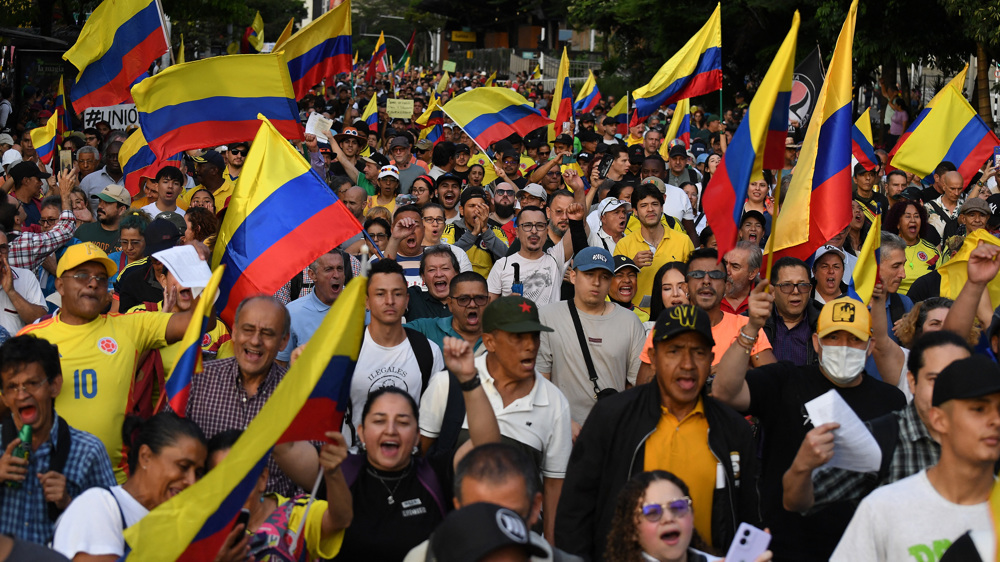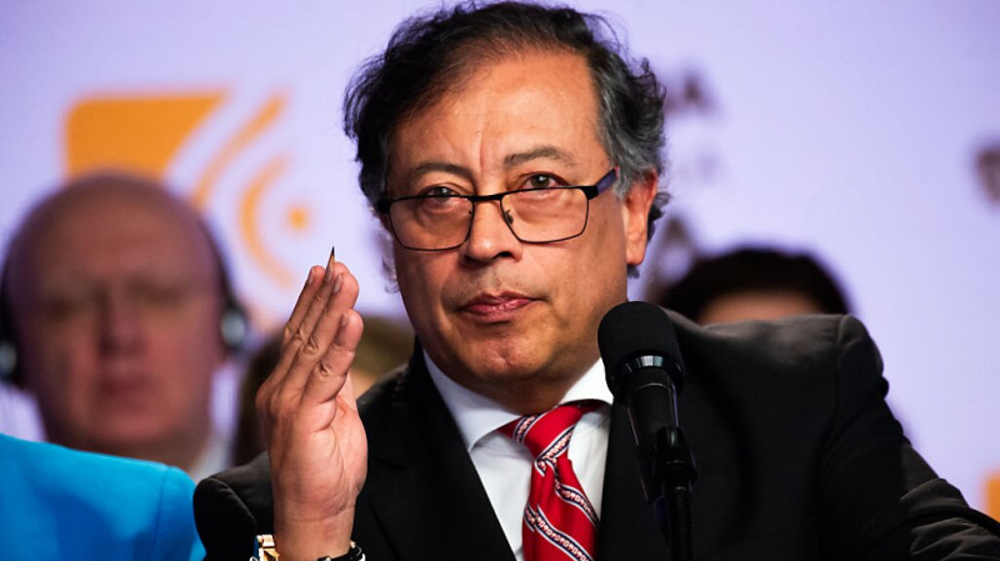Two dead as 30,000 farmers join anti-govt. protest in Colombia
Two people have been killed and dozens of others wounded during clashes between police and thousands of farmers protesting the Colombian government’s trade agreements with Europe and the US.
More than 30,000 farmers joined a growing anti-government protest in Colombia on Thursday, complaining that the country’s free-trade deals with Europe and the US are flooding the country with cheap food imports and worsening rural poverty in the South American country.
The farmers accuse Colombia’s President Juan Manuel Santos's government of reneging on its promises, and are demanding land reform and increased state spending in rural areas.
The government has made a plea to Colombia’s farmer organization, the Agrarian Summit, to come to the negotiating table and end the dispute.
According to the government rights ombudsman's office, protests have now broken out in 24 of Colombia's 32 departments since Monday, blocking at least 14 roads.
Riot police reportedly clashed with the protesters after police attempted to break up the roadblocks.

Officials later announced that two locals had been killed during the confrontations.
In a post published on his Twitter account, Colombian Defense Minister Luis Carlos Villegas confirmed “the death of two indigenous persons during the day's protests.”
In a separate posting, he said there was no evidence yet that the deaths were the result of the use of force by police.
However, the National Indigenous Organization of Colombia (ONIC) confirmed that the two victims were from the western department of Cauca and died from gunshot wounds.
According to ONIC, some 135 people were injured during the Thursday clashes.
The anti-government protests also led to the injury of 31 members of the security forces, the defense ministry reported.
Interior Minister Juan Fernando Cristo traveled Thursday to the department of Cauca, where one of the largest protests was being held, to try to broker a deal for negotiations.
Rural poverty and land tenure are explosive issues in Colombia, where peasant uprisings more than half a century ago morphed into an armed conflict that is still ongoing.
Iran FM: EU’s blacklisting of IRGC a ‘major strategic mistake’
EU blacklists IRGC in legally flawed move irrespective of consequences
VIDEO | Press TV's news headlines
VIDEO | Afghanistan opens first specialized cancer hospital
Trump officials held secret talks with Canadian separatist group: Report
VIDEO | Pakistan’s legal community condemns UNHRC anti-Iran resolution
Resistance groups announce volunteer recruitment to defend Iran
Indians rally to condemn Trump's threats against Ayatollah Khamenei










 This makes it easy to access the Press TV website
This makes it easy to access the Press TV website